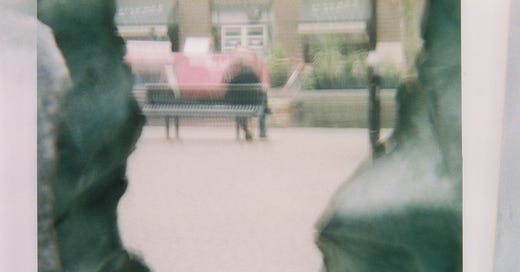To Her, Whose Poems I Adore.
You write as if you’ve known the cold
of winter long before you saw the snow—
as if the earth spoke to you
when it had nothing left to give,
only the hum of roots buried deep,
the slow unraveling of green.
I read your words,
as if through a veil,
and hear my own voice,
the one I’ve buried with the dead
and left there,
waiting for a season
to bring it back.
You speak of the garden,
but it is always the absence of flowers
that haunts you.
You speak of desire,
but it is always the wound
left untouched,
the bruise unbloomed,
the heart’s quiet surrender
to what it knows will never come.
I want to ask you—
what does it mean,
this hunger you name but do not feed?
What does it mean
to hold silence
like a stone in the mouth,
to offer it up,
not as prayer,
but as truth?
Still, I follow,
not to the end
but to the place where endings
are woven thin,
where your words unravel
just enough
for me to slip through.
I adore you,
not for the answers
but for the questions
you refuse to ask.
Labyrinth.
The labyrinth is not a place,
but a question you keep asking—
how did I get here?
The walls are your own hands
reaching for what isn’t there,
stone and shadow,
the endless turning back
toward yourself.
You believed in the center,
once.
A secret waiting to be uncovered,
a light or a voice
that would tell you:
This is the way.
But the center is empty,
and when you reach it,
all you find is silence,
the same silence
that has followed you
since the beginning.
The path twists,
doubles back—
you think you’ve been here before.
You trace the walls with your fingers,
a map of every decision
you didn’t make.
There is no exit,
only the slow unraveling
of desire,
the soft collapse
of certainty.
This is what you learn:
The labyrinth is not meant
to be solved.
It is meant to hold you,
to ask the same question
until you no longer need an answer.
You walk, and walk,
until the walls themselves dissolve,
and all that remains
is the quiet pulse
of your own breath
in the dark.
The Hunger of It.
There is something primal,
the way your body knows before your mind does—
how your skin tightens in the space between us,
how your breath betrays you,
quickening,
as if the air itself has learned desire.
I pretend it’s nothing.
I hold my hands still,
as if I haven’t imagined them
brushing the edge of your collar,
pulling you close enough
that I could feel the heat of you
without touching,
close enough that I’d have no choice
but to touch.
It’s the ache of restraint that defines us.
How we move through conversations,
your voice a low current
I keep trying to swim beneath,
as if, with enough silence,
I could understand
what your body is saying
without words.
There is the moment—
I know you feel it too—
where everything narrows.
Time presses its thumb
against us,
the world condenses into a breath,
a glance.
The way your mouth moves
when you laugh,
the small pause
when our hands nearly meet.
It is there, in the almost.
It is always there.
I think about the hunger of it,
the sharp edge of wanting,
how it cuts without wounding.
A blade just above the skin,
never breaking the surface.
I wonder what it would be like
to let it slip just a little,
to lean into the knife
and feel it carve away the space
between us.
You, unaware, or pretending to be,
hold a kind of power in this.
How you walk into a room
and change the air.
How I feel your presence
before I see you,
as if the body remembers what it has never had.
As if I have been waiting
for something I didn’t know
I wanted.
And yet, I say nothing.
I hold the want inside me,
fold it into the quiet parts of my day,
where it simmers,
low, constant.
Because there is a pleasure in this, too—
the not-having.
The desire itself becomes
its own kind of satisfaction.
As if the wanting were enough.
As if the body could survive
on hunger alone.
Still, sometimes I let myself imagine:
your hand in mine,
the small exhale of your body
as I pull you closer,
how my name would sound
in your mouth,
broken by breath.
It is these fragments I feed on,
the almost,
the just-barely,
the never-quite.
I tell myself it’s safer this way—
to leave the longing unspoken,
to let it linger in the air between us,
unsullied by the weight of touch.
But sometimes, late at night,
I think of what it would mean
to be devoured,
to let the hunger consume me whole.
And I wonder:
what would be left of me
if I did?





well i wanted to make a selection of lines i liked but almost everything resonated in the end. especially the metaphor of the labyrinth, and the feeling of almost-but-not-quite of the last poem. and 'the bruise unbloomed' is just stunning
Awww that first one though. 💚💚💚